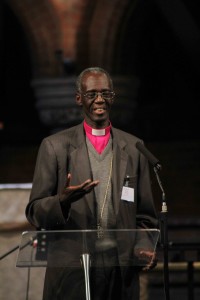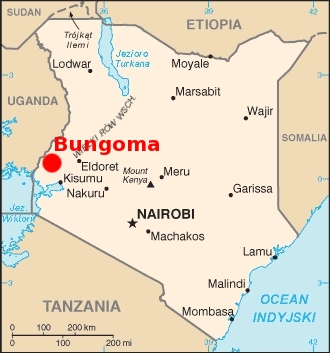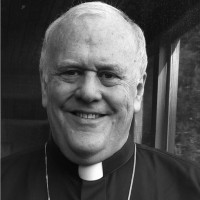The following article by Bishop Bill Atwood first appeared in the February 5, 2013 edition of the AAC’s International Update. Sign up for this free email here.

This week, the House of Bishops in Kenya is meeting. In their role of leadership in the church, the bishops meet to take counsel together and pray, to study scripture and to listen to the Lord. Out of that comes the articulation of vision and plans to fulfill what the bishops believe God is calling the church to be and do.
In addition to addressing issues of spiritual growth, evangelism, and development, there is another responsibility. Kenya is in the final stages of campaigning, as the first presidential election under the newly adopted constitution is about to be held. The bishops are gathering to listen and pray and speak to the nation about the election. Following the hotly contested 2007 election, the entire nation was in shock when tensions erupted into violence across almost all of the country. No one was expecting that Kenya, the rising star of Sub-Saharan Africa could descend into conflict so awful that 1800 people were killed.
Every family in Kenya was impacted by the killings. Hundreds of thousands were displaced. Homes and shops were looted and burned. While there is a new constitution and tremendous progress has been made, there are still many tensions. Charges have been filed at the International Criminal Court at The Hague, Netherlands, but no one has yet been convicted. Marauding militia-like bands on both sides of the conflict attacked people from other tribes. Hundreds of thousands of refugees, called “Internally Displaced Persons (IDP),” fled from the violence only to have to gather in unspeakable conditions in IDP Camps. Now, five years later, thousands have still not been resettled.
The Archbishop who now leads the church in Kenya, Eliud Wabukala, was a diocesan bishop during the worst of the 2008 violence. His diocese was the only area of the country that didn’t have any violence or deaths, but few people know how close it came to melting down and why it didn’t.
His commitment to genuine reconciliation is one of the major reasons that he was selected to become the Archbishop. At the time of the fighting, Bishop Wabukala was the Chairman of the Council of Christian Churches of Kenya(CCK). When the attacks first began, people were in shock. Immediately upon hearing about what was happening, then Bishop, (now Archbishop) Eliud Wabukala raced to the radio station in his home area of Bungoma. He walked in the door of the station and simply said to the manager, “Put me on the air.”
For hour after hour Bishop Eliud read scripture and prayed over the air. He called people to calm and fervently prayed that the rising tide of violence would recede. He prayed for people to forgive each other and be reconciled. He prayed for the families across the nation that had lost loved ones. The people listened and violence was stayed in Bungoma.
As the days passed, more and more stories of deaths and violence were reported. In some towns, virtually all the businesses were destroyed. Worst were the areas where tribal groups were intertwined. Realizing the need for all the Kenyan denominations to speak for peace and calm with a united voice, Bishop Eliud went to Nairobi to gather leaders of the denominations that made up CCK. With strength and Biblical conviction, they spoke to the nation, calling for peace. What many people do not know is that Bishop Eliud went to the leaders of the battling groups and challenged them to call for an end to violence. Seeing that real reconciliation was not possible while confusion reigned about who actually won the most votes, he began to challenge the two presidential contenders to agree to shared leadership roles with shared power.

Kofi Annan, had been a UN representative in Rwanda at the time of the genocide in that country. When violence broke out in Kenya, he went there to call for peace. On arrival, he said that the greatest mistake of his life was his failure to intervene in the Rwandan genocide until it was too late. It was a scar from which he said he could never really recover. When he heard the plan that Bishop Eliud was putting forward, challenging the leaders to repudiate violence and agree to share power, he set that as the path out of the horror that was plunging Kenya toward destruction.
While Bishop Eliud was in Nairobi, the situation in Bungoma had become much more tense. Without his voice of calm broadcasting over the radio, tensions were rising dramatically. By the time he returned, between ten and twenty thousand people had gathered at the local airfield because it was a large open space. There, agitators were whipping their emotions and calling people to fight those from other tribes. Some were condemning Bishop Eliud, even pledging to kill him.
As the pilot approached the airfield the thousands of people covered the landing area. Even though the pilot flew the plane down the runway just off the ground, the crowd would not disperse. In the dark, however, with Bishop Eliud’s urging, the veteran MAF bush pilot was able to land out of sight of the gathered crowd. Bishop Eliud made his way into the crowd. He was impossible to miss because of his height. In the midst of the chaos he began to address the people.
He shared from 1 Kings 3 the story of the two women who were claiming to be the mother of the same child because one’s baby had died. King Solomon was asked to sit in judgment to decide who the real mother was. He put forward the solution that the child should be cut in two and half given to each woman. As he suspected, the real mother said, “Give the child to the other woman and spare the baby’s life.” Solomon knew that the real mother would choose the sacrifice of losing custody of the child in order to preserve the life of the baby she loved.
Standing to his full 6 foot 5 height, Bishop Eliud thundered, “Who will come and cut the baby! Come now if you will cut the child. Who will come and take the knife?”
The crowd fell silent, convicted, knowing that he was challenging them that in the current circumstances of confusion about the vote count, those who insisted on complete victory for their political party would be “cutting the baby” of Kenya. Quietly, the people began to disperse. One after another came to him ashamed and asked for his forgiveness. Some even confessed that they had plotted to kill him.
The fruitful ministry in Bungoma was exactly what Kenya needed; a powerful and robust reconciliation where people of different tribes and perspectives were called together. In addition to being named as Archbishop Nzimbi’s successor, Archbishop Eliud was also named the head of a government commission against corruption.
Now, as Kenya is about to have another election, people across the nation are concerned that there might be violence again. In order to influence the nation to remain peaceful, the bishops are gathering this week to pray and to speak God’s word of calm and justice.
Ultimately, shared power was adopted and a new constitution was developed and then approved. While the new constitution has some flaws, it represents tremendous progress and hope-even in the midst of anxiety. Pray for the bishops meeting this week. And pray for Kenya over the next weeks. May the words of Jesus be found powerfully true, “Peace be with you.” Archbishop Eliud’s leadership in the violence in 2007 and early 2008 was so fruitful, the bishops are gathering this week with a sober sense of the depth of the challenges, but also with a sense of responsibility for what we are called to do and a sense of hopefulness about God’s ability to bring transformation.
– Bishop Bill Atwood is General Secretary of Ekklesia and Bishop of the International Diocese, ACNA


